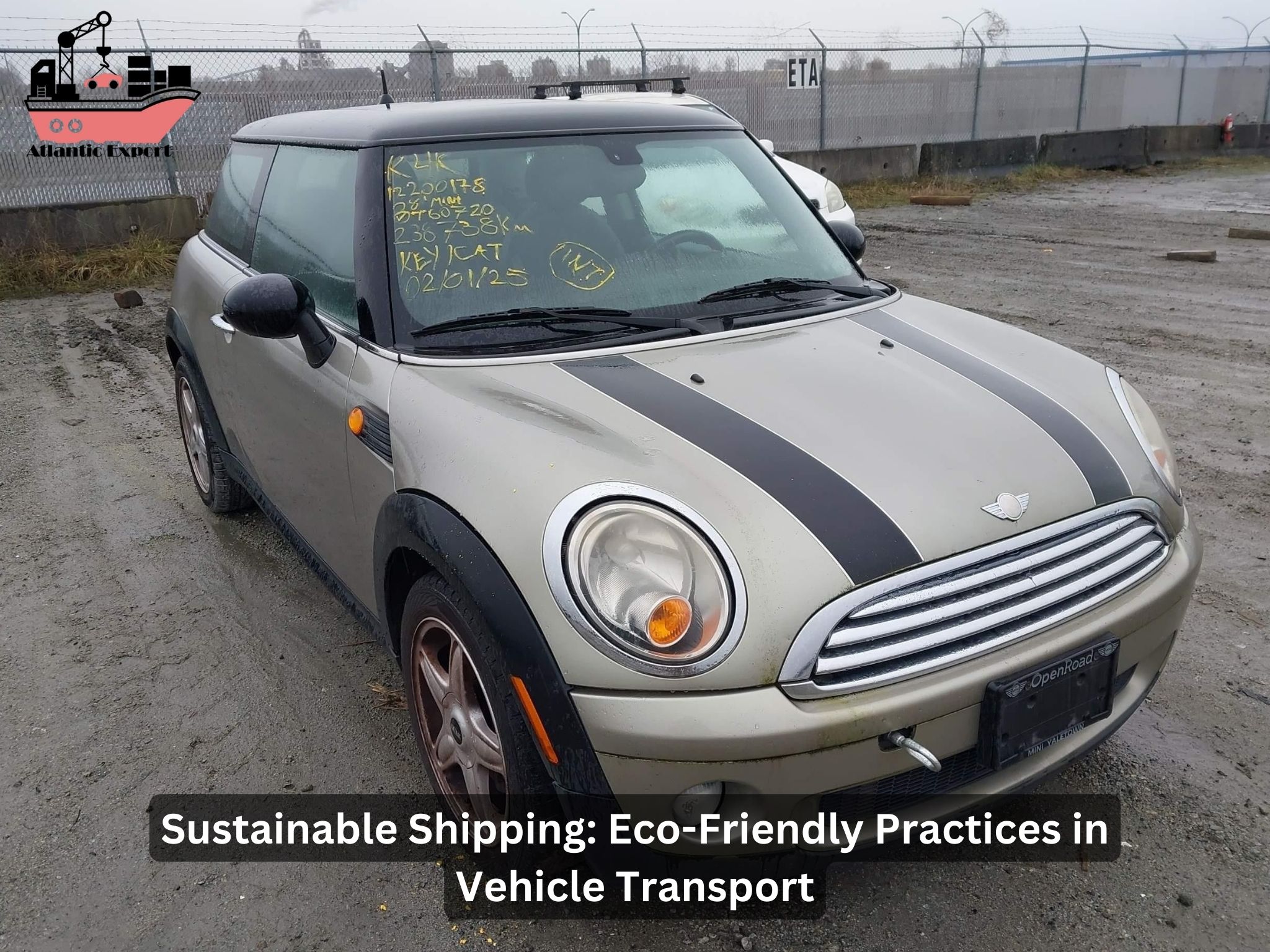The vehicle transport industry is a cornerstone of global commerce, yet it is also a significant contributor to greenhouse gas emissions and environmental degradation. At AtlanticExport, we understand the importance of adopting sustainable practices to minimize the environmental impact of logistics operations. In this article, we explore how eco-friendly logistics is shaping the future of vehicle transport and why businesses must prioritize sustainability in their supply chains.
The Environmental Impact of Traditional Shipping
The transportation sector, including vehicle logistics, accounts for a substantial share of global carbon emissions. Heavy reliance on fossil fuels, inefficient supply chains, and outdated technologies contribute to excessive fuel consumption and increased air pollution. Additionally, poor packaging practices and waste generation exacerbate the environmental crisis.
Key Contributors to Carbon Footprints in Shipping:
- Fuel inefficiency in conventional vehicles and trucks.
- Over-reliance on fossil fuels instead of renewable energy sources.
- Inefficient route planning, leading to increased delivery time and fuel consumption.
- Non-recyclable packaging materials, resulting in substantial waste
Adopting Eco-Friendly Logistics Practices
1. Leveraging Renewable Energy Sources
Switching to clean energy such as solar and wind power for operations is one of the most effective ways to reduce the carbon footprint. Electric vehicles (EVs) and electric trucks play a pivotal role in achieving zero-emission logistics. Additionally, the integration of green technologies helps companies minimize their dependency on fossil fuels.
2. Implementing Alternative Fuels
Biofuels, hydrogen, and other alternative fuels are gaining traction as viable options to power the trucking industry. These fuels are not only cleaner but also more sustainable in the long term.
3. Optimizing Logistics Operations
Efficient supply chain management can significantly reduce emissions. Strategies include:
- Utilizing intermodal transportation (rail, truck, and sea).
- Advanced route optimization technologies to minimize delivery times and fuel use.
- Consolidating freight shipments to reduce the number of trips.
At AtlanticExport, we prioritize route optimization and innovative logistics solutions to deliver vehicles efficiently while maintaining our commitment to the environment.
Green Technologies Revolutionizing Vehicle Transport
Electric Vehicles and Trucks
The adoption of electric vehicles (EVs) and electric trucks in freight transport is transforming the logistics industry. With zero emissions and lower operational costs, EVs are a cornerstone of sustainable transportation.
IoT and Smart Logistics
The Internet of Things (IoT) enables real-time monitoring of shipments, improving supply chain efficiency. IoT-driven logistics ensures reduced fuel consumption, enhanced time management, and a lower environmental footprint.
Energy-Efficient Infrastructure
Modern warehousing solutions powered by renewable energy and automated systems can drastically cut energy consumption.
Sustainable Packaging Solutions
Reducing waste generated during transportation is essential for eco-friendly operations. Businesses are increasingly using:
- Recyclable packaging materials.
- Biodegradable alternatives to plastic.
- Minimalistic packaging designs to lower freight weight and fuel use.
At AtlanticExport, we emphasize the use of sustainable materials in our packaging to minimize the environmental footprint of every shipment.
The Role of Green Practices in Combating Climate Change
Sustainable logistics practices are critical in mitigating the effects of climate change. Companies adopting green logistics contribute to a greener future by:
- Reducing carbon emissions.
- Supporting the transition to renewable energy.
- Promoting circular economies with closed-loop supply chains.
Future Trends in Sustainable Vehicle Transport
1. Autonomous Vehicles
Self-driving cars and trucks promise greater fuel efficiency by optimizing speeds and routes, leading to lower emissions.
2. Renewable Energy Adoption
The logistics sector will see increased reliance on green energy sources like solar and wind.
3. Digital Transformation
Technological advancements in data analytics and AI-driven logistics will streamline operations, reducing both costs and environmental impact.
As a pioneer in the industry, AtlanticExport is at the forefront of these innovations, ensuring that our practices align with global sustainability goals.
The Economic Benefits of Sustainable Shipping
Cost Savings
Switching to fuel-efficient technologies and electric trucks reduces operational costs significantly.
Enhanced Brand Reputation
Consumers are increasingly favoring businesses that demonstrate a commitment to the environment. Sustainable practices enhance a company’s corporate social responsibility (CSR) profile, attracting eco-conscious customers.
Regulatory Compliance
Governments worldwide are enforcing stricter emissions regulations. Adopting sustainable practices helps businesses stay compliant and avoid penalties.
Steps Businesses Can Take for a Greener Future
- Adopt Renewable Energy Solutions: Transitioning to solar-powered operations and electric trucks is a vital step.
- Embrace Sustainable Technologies: Invest in IoT and AI-driven logistics systems for smarter operations.
- Promote Sustainable Packaging: Replace traditional materials with recyclable or biodegradable options.
- Optimize Supply Chains: Use route optimization software and consolidate shipments.
- Educate Stakeholders: Raise awareness among employees and partners about the importance of sustainability.
FAQs
1. What is sustainable shipping?
Sustainable shipping refers to adopting eco-friendly practices in the transportation of goods, focusing on reducing carbon footprints, optimizing fuel efficiency, and minimizing environmental impact.
2. How do electric vehicles contribute to sustainable transportation?
Electric vehicles operate on renewable energy, producing zero emissions. They significantly reduce fuel consumption and help combat climate change.
3. What are the benefits of sustainable logistics for businesses?
Sustainable logistics lead to cost savings, enhanced brand reputation, regulatory compliance, and reduced environmental impacts, making it a win-win for companies and the environment.
4. How does AtlanticExport support sustainable vehicle transport?
At AtlanticExport, we integrate green logistics practices, adopt renewable energy solutions, and prioritize eco-friendly operations to minimize environmental impact.
5. Why is sustainable packaging important in shipping?
Sustainable packaging reduces waste, lowers freight weight, and contributes to a cleaner environment by replacing non-recyclable materials with eco-friendly alternatives.

Leave a Reply